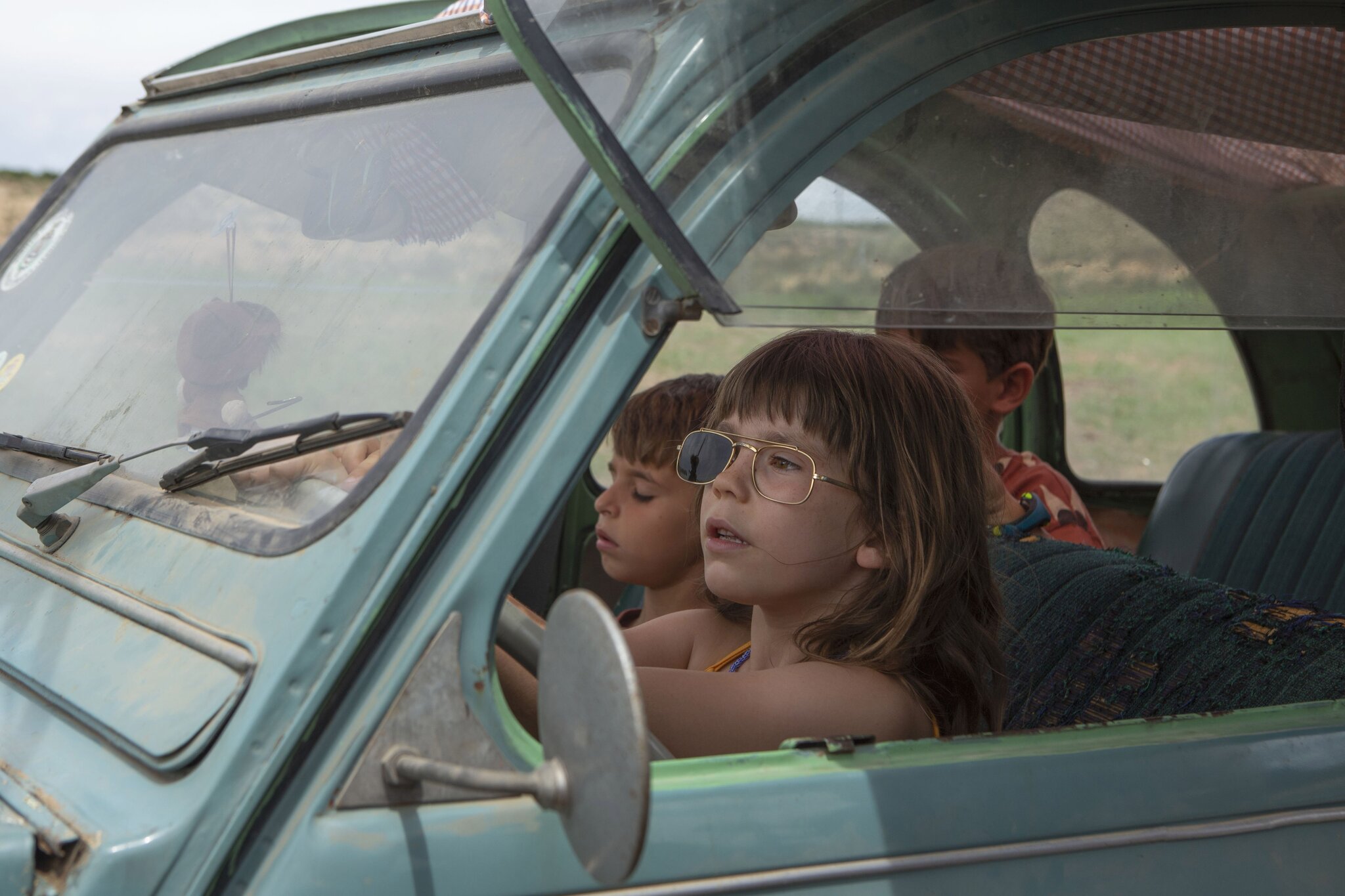Big agriculture and a renewable energy company (of all people) threaten the livelihood of a Catalonian peach farming family in Alcarràs, Carla Simón’s latest sunny pastoral and her first since the 2017 debut Summer 1993. Alcarràs is set in the present day, though you’d hardly notice, and like many of its characters it looks towards the past. That idea––that time has a way of sometimes flattening out––feels central to Simón’s film and distinguishes it from similar works of social realism: Alcarràs appears simple, even slight at first, but is deceptively far-reaching; enough at least to have impressed a Berlinale jury led by M. Night Shyamalan (and including no less than Ryusuke Hamaguchi), who collectively awarded Simón the Golden Bear.
It isn’t difficult to imagine as nimble and precise a writer as Shyamalan appreciating the simplicity and quiet expansiveness of Simón’s film. It centers on three generations of the family Solé (the Catalan for “sun,” if you hadn’t guessed) as they begin what might be their last harvest together. Their existential threat looms all around with neighboring farms shutting up shop and being replaced by fields of solar panels. Soon their own eviction letter arrives. Josep Abad plays Rogelio, the old and doting patriarch; a man unaware of how far the farming game, perhaps the world, has moved on without him. Their landlords are the Pinyol family, with whom they seemingly once had a gentlemen’s agreement that the land was effectively theirs. But the new generation (one of whom affects a white stetson—major red flag) are refusing to honor it. (Rogelio’s bafflement and sadness is rooted in a story he tells about his grandfather saving a Pinyol during the Spanish Civil War.)
Amongst this sprawling clan, more than one could claim to be the film’s protagonist. Rogelio’s son, Qumet (Jordi Pujol Dolcet), has taken charge and plans to fight, at a cost to his mental and physical health. His partner, the no-nonsense Dolors (Anna Otin), helps to keep him grounded but his brother and sister-in-law threaten mutiny by listening to the energy company’s job offers. Qumet’s son, Roger (Albert Bosch), grows weed behind his dad’s back and enjoys a drink while seeming no less dedicated to the family plot, in spite of Qumet’s insistence that he focus on schoolwork. His shy, reserved younger sister, Mariona (Xènia Roset), only goes further into her shell with each of the family’s setbacks. (Berta Pipó, who appeared in Summer 1993, returns here as an aunt.) The three youngest run about without a care, unaware that their little universe is closing in around them.
This is the definition of a good ensemble. Performances are nuanced across the board and the characters, in spite of limited screen time, are well rounded; each would be redundant outside the whole. Simón is a wonderfully economical filmmaker in this sense, with a keen ability to express whole swaths of time and personal history in small, seemingly inconsequential moments. We only needed to see the other parents’ reaction when Frida grazed her knee in Summer 1993 to know exactly the kind of awful fate the girl’s mother had met; Simón brings that skill to bear again in Alcarràs, using similarly succinct touches to express her characters’ world-views and inner lives. A scene in which Rogelio takes Mariona to pick figs from a tree originally planted by the Pinyols especially stands out.
These small events come together to form a detailed portrait of the Solés—you begin knowing them, easily liking them. One of the slimmest silver linings of the COVID era has been remembering what it felt like to deeply want to be in the places we are watching—a once-basic draw of cinema that has been diluted in the age of budget airlines. With all its sunshine, outdoor dinners and, through the wide eyes of their youngest, endless corners to explore, the Solé farm fits that bill to the point you begin worrying for all the tangled lives it holds together. In one rather Marquezian moment, Iris (Ainet Jounou), Qumet’s youngest daughter, sings a traditional Catalonian farming song and Rogelio joins in, his memory suddenly jogged; and his family, in a rare moment of unity, are transfixed. The scene is as sweet and sentimental as Simón’s film sometimes threatens to be, but amongst that generational divide one can sense the sweep of history.
Alcarràs premiered at the 2022 Berlinale.

